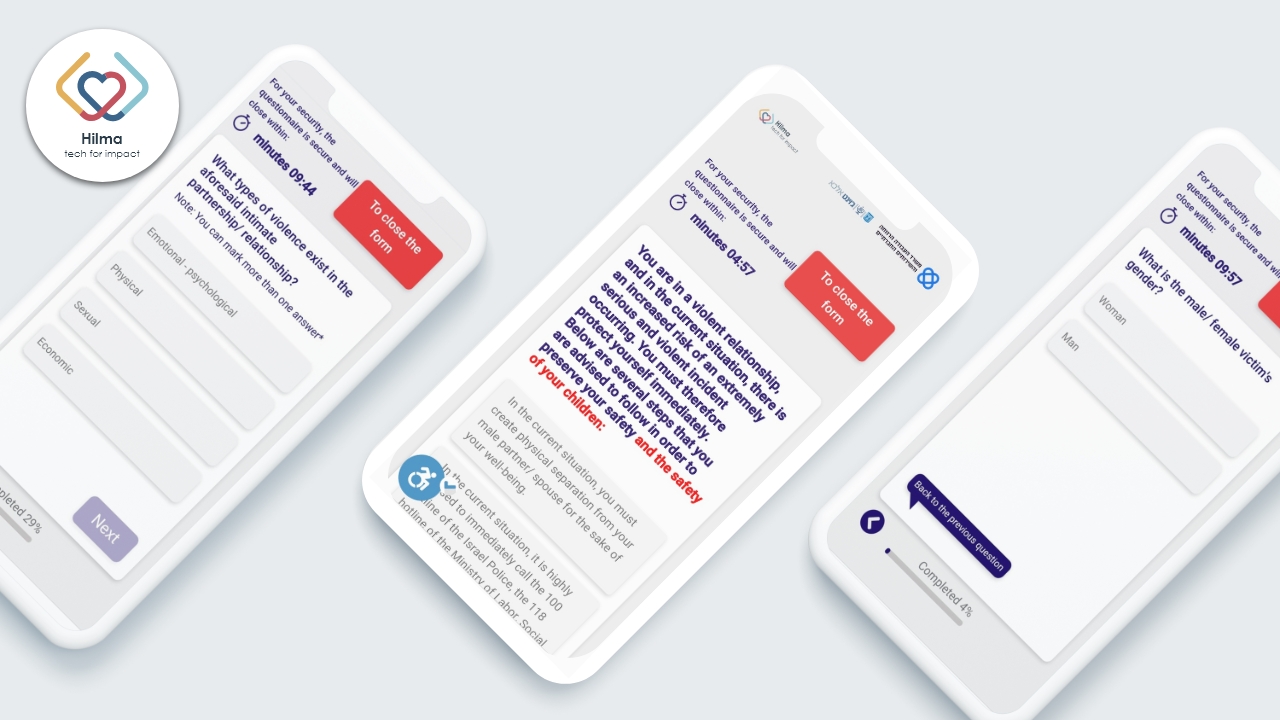Gender Equality


Home » Gender Equality » SDG 5-New Browser Based “Risk Questionnaire”, to Support Victims of Domestic Violence
SDG 5-New Browser Based “Risk Questionnaire”, to Support Victims of Domestic Violence
The current COVID-19 pandemic has led to a severe increase in domestic violence in many societies around the globe and in Israel. In the time frame of March to October 2020, the number of domestic violence complaints reported to welfare agencies in Israel has tripled compared to 2019. The increase is attributed to the tensions within the household from the countrywide lockdowns. In 2020, 22 women have been murdered by their husbands or other relative members, the majority being mothers. These hard facts are just the tip of the iceberg since many cases of domestic violence are not reported due to shame and fear of backlash.
The i-Risk Questionnaire
For this specific situation the Hilma team developed the i-Risk Questionnaire. It is designed to assess the risk level of victims of domestic abuse through a personal diagnostic questionnaire. (The questionnaire was developed by Hilma in partnership with the Israeli Ministry of Welfare and JDC Israel).
The i-Risk Questionnaire is a digital, browser based , diagnostic questionnaire designed to help victims of domestic violence (and their relatives) independently examine the level of risk in their marital relationship. Based on the answers one inputs into, a measure of “danger level” is calculated and displayed immediately after completing the questionnaire. In addition, it lists all the details and contact information to whom the victim can reach out for immediate help. Finally, to protect anonymity, all data is deleted from the browser after ten minutes to mitigate fears of being discovered.


The questionnaire was aired for the Israeli public in September 2020, but the number of users skyrocketed at the end of November when the Israeli Ministry of Welfare sent out the questionnaire as part of Domestic Violence Awareness Month. In three months upwards of 23,000 people have completed the questionnaire. Data shows that 82% of victims of domestic violence that took the questionnaire are women.
In accordance with this overwhelming statistic, the questionnaire works to advance the fifth goal of the United Nations’ 17 Sustainable Development Goals (SDG’s): achieve gender equality and empowerment for all women and girls. Dr. Cochav Elkayam-Levy, an Israeli expert in international law and human rights, focuses on transformative gender equality and sustainable development. She identifies violence against women as “one of the most stable obstacles to sustainable development as set out in the UN SDG’s.” She elaborates, “certainly, as long as violence against women persists, we cannot claim to be making real progress towards equality, justice or development.”
Indeed, violence against women presents a significant global crisis as, according to research done by the UN, one in three women and girls worldwide, between the ages of 15 and 49, report experiencing physical or sexual violence by an intimate partner. The current pandemic, moreover, has only intensified the situation. For example, recent lockdown measures have trapped many women at home with their abusers.


To solve this increasingly problematic issue, Dr. Elkayam-Levy indicate the questionnaire as a practical solution. She explains that through the questionnaire, Hilma commits itself to eliminating gender-based violence. In doing so, “it meets UN SDG’s set target to improve the status of women.” Reinforcing the impact of the questionnaire she exclaims, “this is the future and this is what is going to bring us closer to a gender-just society.”
While the questionnaire played a significant role in Israel’s Domestic Violence Awareness campaign, gender-based violence is a global issue. As a result, the questionnaire in Israel is currently available in Hebrew, English, Arabic, Russian, and Amharic, and can be very easily adapted to other countries and cultures. Hilma invites all interested and concerned communities to reach out to obtain access to the program.
Hilma Tech is an impact-tech non-profit NGO established in 2018. It develops technological innovations that addresses public and social challenges to improve education, health, and welfare in Israel and worldwide. Hilma promotes the idea that every individual has the right to empowerment and support and focuses on technological solutions for underserved populations and people with disabilities.
Written by Sophie Samuels
Related articles


SDG5-Gender Equality: Unfinished Business – Part 2
Gender Equality Read Part 1 As emphasized in part 1 one of this series, “distortions that discriminate against women” in Israel has been a matter


SDG 5 – Femicide Against Women in Israel
Gender Equality “An eyewitness told police in the past few days that she had seen the gang rape and murder of a young woman hiding


SDG 5-Traditional values in the practice of gender equality
Gender Equality Traditional values in the practice of gender equality Havruta is the Talmudic Aramaic word for fellowship, alliance, companionship. There could not be a


















